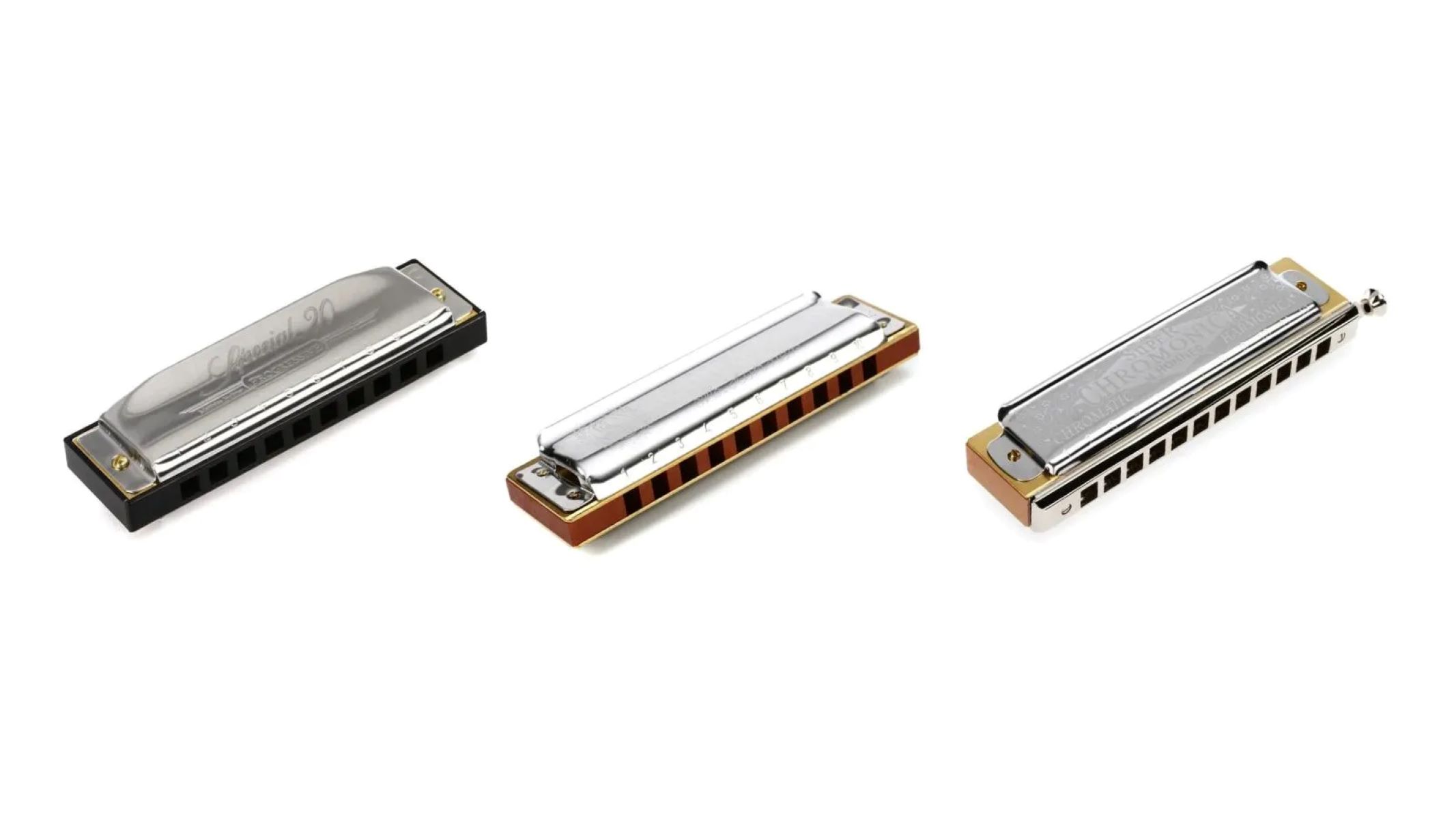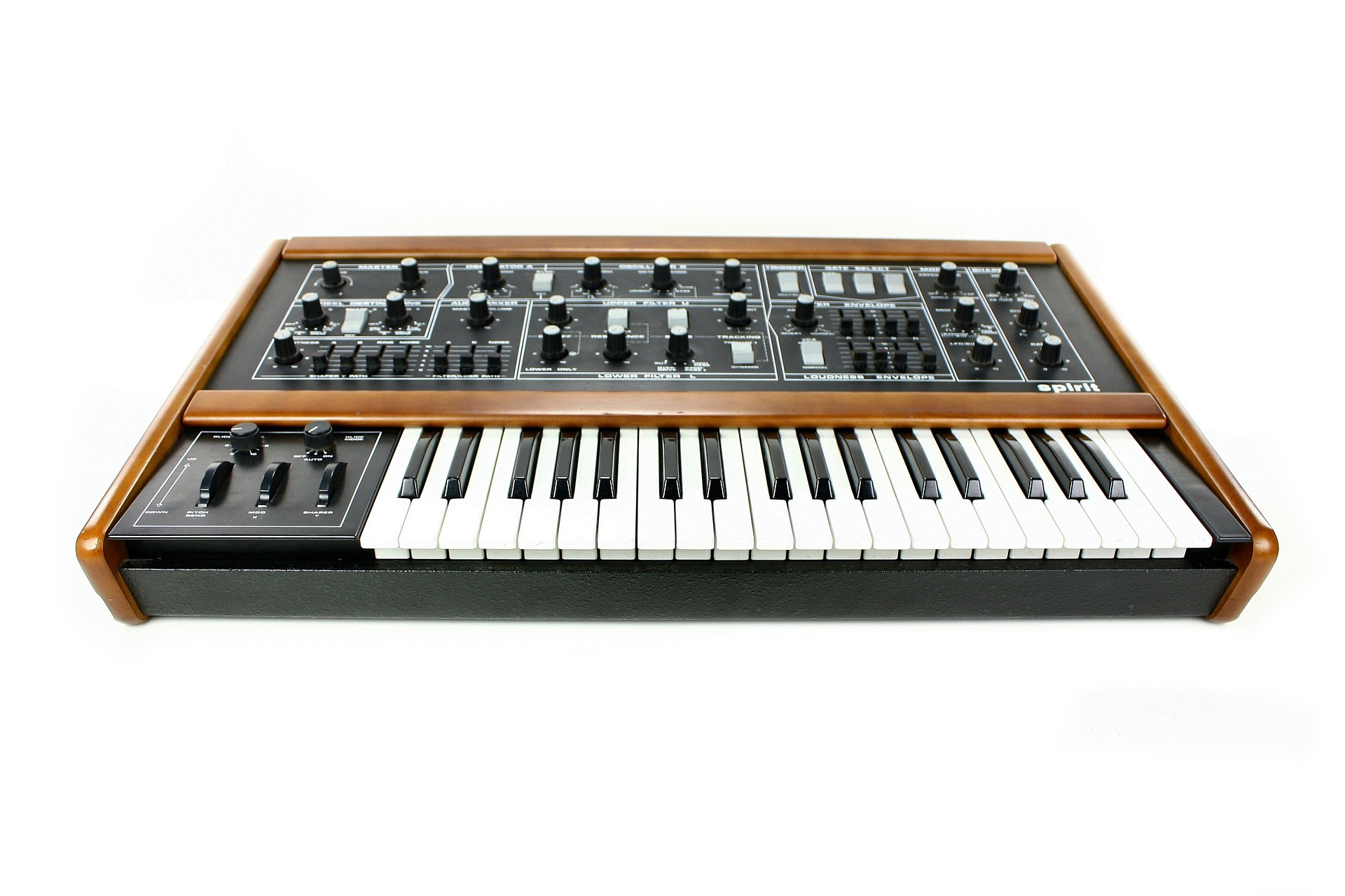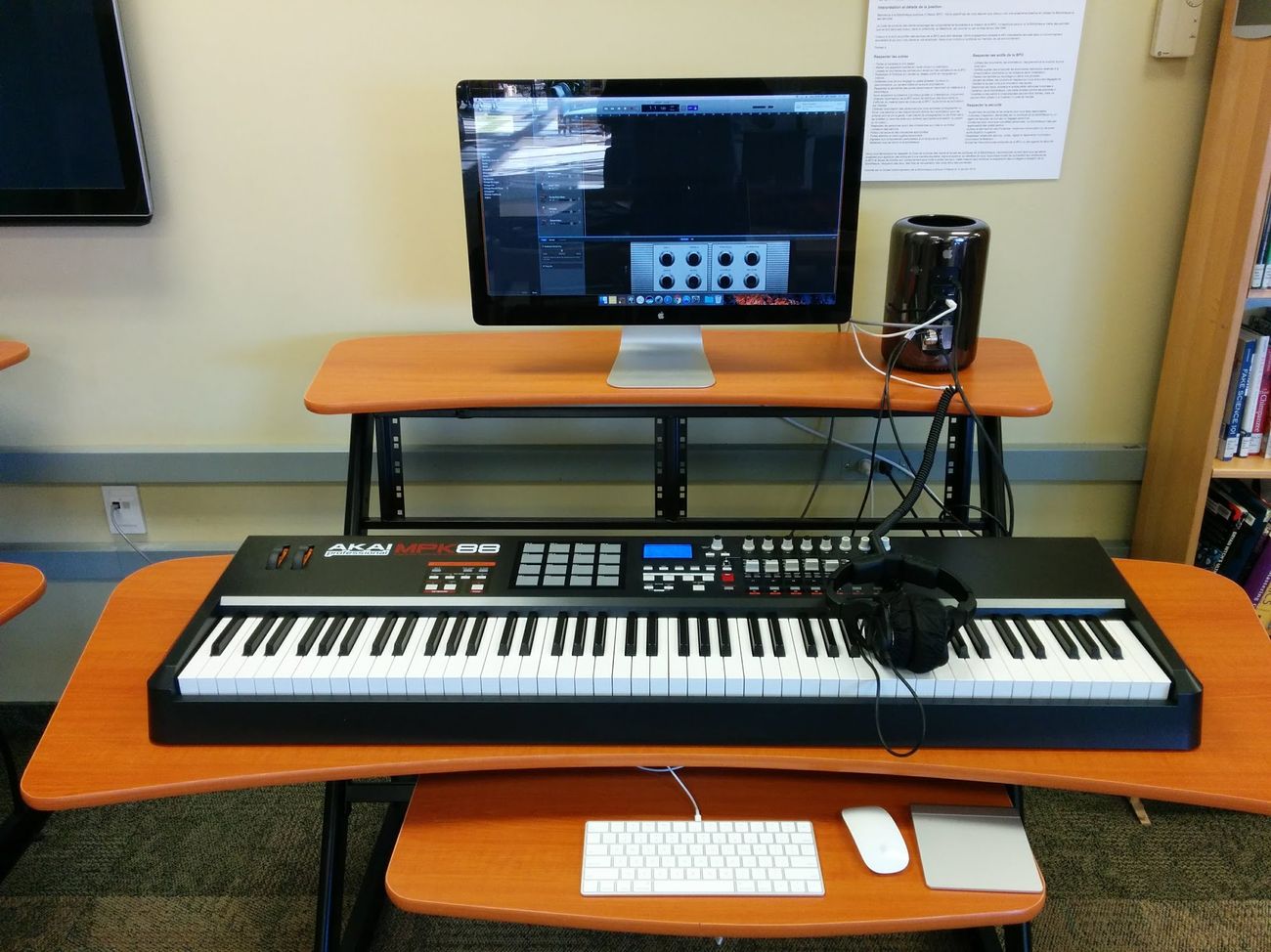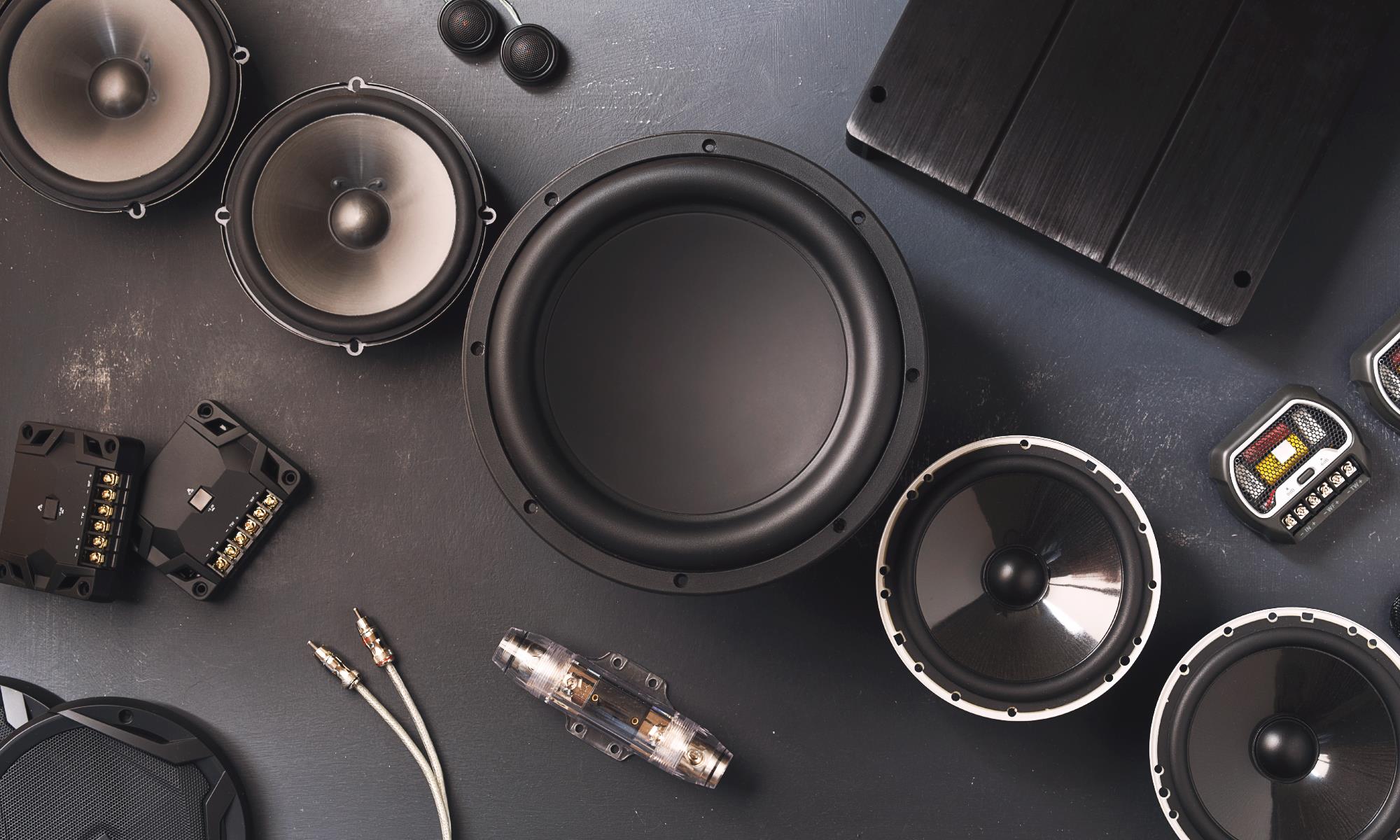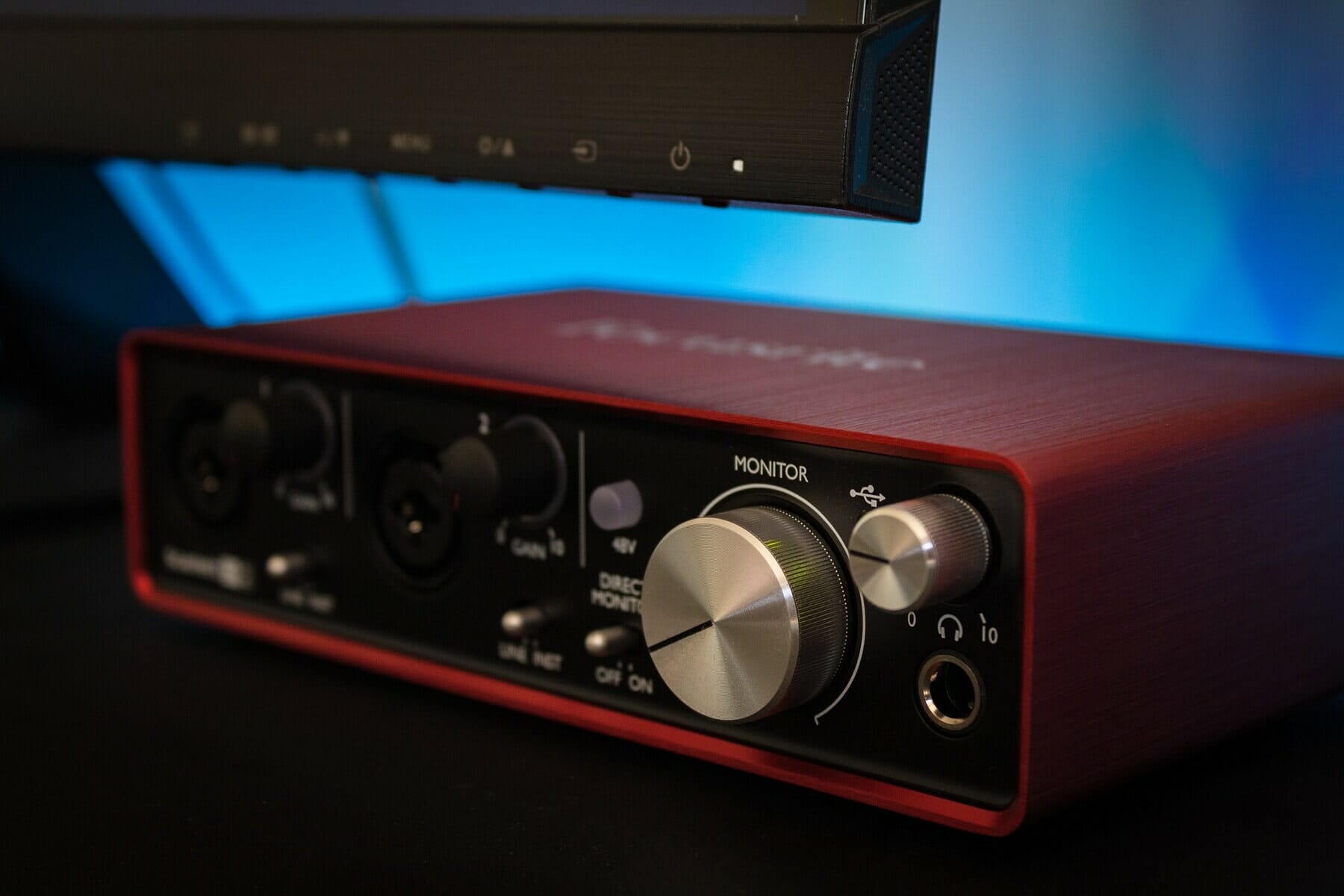Home>Production & Technology>Musician>What Makes A Good Musician


Musician
What Makes A Good Musician
Published: January 27, 2024
Discover the key qualities that make a musician truly exceptional. From talent and dedication to passion and creativity, learn what it takes to succeed in the world of music.
(Many of the links in this article redirect to a specific reviewed product. Your purchase of these products through affiliate links helps to generate commission for AudioLover.com, at no extra cost. Learn more)
Table of Contents
Introduction
Music is a universal language that has the power to move and inspire. It has the ability to evoke emotions, convey messages, and unite people from all walks of life. At the heart of every great musical performance is a skilled and talented musician. But what truly separates a good musician from the rest? What qualities and traits do they possess that set them apart?
In this article, we will delve into the characteristics that make a musician great. From their passion and technical skill to their creativity and professionalism, we will explore the qualities that contribute to their success. Whether you are an aspiring musician looking to refine your craft or a music enthusiast curious about what makes a musician exceptional, this article will provide you with valuable insights.
It is important to note that while certain qualities may be innate, many can be cultivated and developed through dedication and practice. Great musicians are constantly honing their skills and pushing themselves to new heights. So, let’s dive in and discover what makes a good musician.
Passion for Music
At the core of every good musician is a genuine passion for music. It is this deep love and enthusiasm for their craft that drives them to continuously pursue excellence. A passionate musician approaches their instrument and music with an unwavering commitment and dedication.
When a musician is truly passionate, it shines through in their playing. They are able to connect with the music on a profound level, effortlessly conveying the emotions and messages embedded within the composition. Their passion fuels their creativity, allowing them to explore new ideas, styles, and genres.
Passionate musicians also have an innate curiosity about music. They constantly seek out new knowledge and experiences to broaden their musical horizons. They may study different musical traditions, explore various genres, or experiment with different techniques. This curiosity helps them grow as musicians and expand their artistic possibilities.
Furthermore, a passion for music fuels a musician’s drive to practice and improve. They willingly invest hours upon hours of focused practice to refine their technical skills and expand their musical vocabulary. Their commitment to self-improvement is fueled by their love for music.
In essence, a passion for music is what sets a good musician apart. It serves as the foundation upon which their musical journey is built, fueling their creativity, dedication, and growth. Without passion, a musician may have technical skill, but they may lack the ability to truly connect with their audience and evoke an emotional response.
Technical Skill
Technical skill is a fundamental aspect of being a good musician. It refers to the proficiency and mastery of the instrument or vocal technique. A musician with strong technical skills can effortlessly navigate the instrument, executing complex passages, scales, and chords flawlessly.
Developing technical skill requires diligent practice, precision, and attention to detail. It involves honing techniques such as finger dexterity, breath control, intonation, and rhythm. A good musician understands the importance of mastering the technical aspects of their instrument, as it provides a solid foundation for musical expression.
However, technical proficiency alone does not make a musician exceptional. It is how they apply their technical skills to convey their musical ideas and emotions that truly sets them apart. A good musician understands that technical skill is a means to an end and not an end in itself.
Furthermore, technical skill should be balanced with musicality. It is not enough to play all the right notes; a good musician knows how to shape phrases, create dynamics, and express the intended emotion in the music. They have a keen sense of timing and are able to interpret the composer’s intentions while adding their own flair and interpretation.
Moreover, a good musician understands the importance of continually refining their technical skills. They are always seeking to improve their technique, whether through lessons, workshops, or self-study. They are receptive to feedback, open to new approaches, and willing to push themselves outside of their comfort zone to expand their technical capabilities.
In summary, technical skill is a crucial aspect of being a good musician. It provides the foundation upon which musical expression is built. A musician with strong technical abilities can confidently and convincingly convey their musical ideas, connecting with their audience on a deeper level.
Musicality
Musicality is what breathes life into a musician’s performance. It refers to the ability to interpret and understand the musical elements of a composition and convey them in a meaningful way to the audience. While technical skill is crucial, musicality is what truly makes the music come alive.
Great musicians possess a heightened sense of musicality, allowing them to tap into the spirit and essence of the music they are performing. They have a keen ear for nuances in dynamics, phrasing, and expression, and use these elements to convey the composer’s intentions and evoke emotional responses.
A musician with strong musicality is able to shape phrases, adjust the tempo, and create musical tension and release. They understand the underlying structure of the music and are able to highlight its musical intricacies. They know when to be bold and expressive and when to exercise restraint, creating a balanced and engaging musical narrative.
Furthermore, musicality extends beyond the technical aspects of playing an instrument. It encompasses the ability to improvise, to add personal embellishments, and to bring one’s unique musical voice to a performance. A good musician knows how to infuse their own musical personality into the music while maintaining respect for the composer’s original intent.
To develop musicality, a musician must actively listen to a wide range of music and study different musical styles and genres. They must study music theory, harmony, and composition to gain a deeper understanding of the underlying structures and patterns in music. They must also continuously seek inspiration from other musicians, attend live performances, and engage in musical collaborations.
In summary, musicality is a key component of being a good musician. It allows them to go beyond the technical execution of the music and connect with the essence and emotion of the composition. It is what brings depth, texture, and individuality to their performances, leaving a lasting impact on their audience.
Creativity and Innovation
Creativity and innovation are vital qualities that distinguish a good musician from the rest. While technical skill and musicality provide a solid foundation, it is the ability to think outside the box and push musical boundaries that allows a musician to stand out and make a lasting impact.
A creative musician approaches their craft with a sense of curiosity and a willingness to explore new ideas. They are not afraid to take risks and challenge conventional norms. They constantly seek fresh perspectives and are open to incorporating diverse influences into their music.
Innovation is closely linked to creativity and involves taking existing musical concepts and transforming them into something new. It could be through the use of unconventional techniques, blending different musical genres, incorporating technology, or creating unique arrangements. Innovative musicians are constantly seeking new ways to express their musical vision and captivate their audience.
Moreover, creativity and innovation extend beyond the composition and performance of music. A good musician may also possess skills in songwriting, improvisation, and arranging. They have the ability to compose original music that reflects their personal experiences and emotions, infusing their compositions with their unique voice.
Furthermore, creativity and innovation are nurtured through continuous exploration and exposure to different artistic mediums. Musicians who are open to collaborations with artists from different disciplines such as visual arts or dance often find inspiration in these interdisciplinary collaborations.
Additionally, technology has been a driving force in enabling musicians to innovate and explore new sonic possibilities. From digital recording and production techniques to the use of virtual instruments and effects, technology has expanded the creative palette for musicians, allowing them to create sounds and textures that were once unimaginable.
Ultimately, creativity and innovation allow a musician to leave their mark on the music industry. It helps them break boundaries, challenge expectations, and contribute to the evolution of music as an art form.
In summary, creativity and innovation are essential for a good musician. They foster a spirit of exploration and experimentation, enabling musicians to create unique and captivating musical experiences for themselves and their audience.
Discipline and Practice
Discipline and practice are integral to the growth and development of a good musician. While talent may provide a natural advantage, it is through consistent practice and disciplined habits that a musician can reach their full potential.
A disciplined musician understands the importance of establishing a regular practice routine. They set aside dedicated time each day to work on their instrument or voice, honing their skills and addressing areas that need improvement. They approach practice with a focused mindset, setting specific goals and objectives to guide their progress.
Consistent practice allows a musician to build muscle memory, develop technical proficiency, and internalize musical concepts. It helps them develop a deep understanding of their instrument, enabling them to effortlessly navigate through challenging passages and complex musical arrangements.
Furthermore, discipline extends beyond practice sessions. It encompasses habits such as maintaining proper health and wellness, including sufficient rest, nutrition, and exercise. A good musician understands that physical and mental well-being are crucial for optimal performance.
Aside from discipline, a good musician embraces the concept of deliberate practice. This form of practice involves focusing on specific areas that need improvement and working on them systematically. It involves breaking down challenging passages, isolating specific techniques, and using effective strategies to overcome difficulties.
Discipline and practice also contribute to a musician’s ability to perform confidently in various settings. Whether it’s a solo recital, a band performance, or a session in a recording studio, the discipline to rehearse diligently ensures that a musician is prepared and can deliver a polished and compelling performance.
It is worth noting that discipline and practice should be balanced with a healthy mindset. Burnout can be a real risk for musicians, so it is important to find a balance between intensive practice and self-care. Taking breaks, exploring other creative outlets, and maintaining a support network can help prevent burnout and foster a sustainable and fulfilling musical journey.
In summary, discipline and practice are vital factors in the development of a good musician. They provide the foundation for technical proficiency, musicality, and confidence in performance. By cultivating disciplined habits and engaging in deliberate practice, musicians can continually improve their skills and reach new heights in their musical journey.
Communication and Collaboration Skills
Being a good musician goes beyond individual talent and technical skill. It involves the ability to effectively communicate and collaborate with others. Musicians who possess strong communication and collaboration skills are not only able to contribute to the success of a musical ensemble or project but also create a supportive and enriching environment for those around them.
Communication is essential for musicians to convey their ideas, intentions, and musical vision to fellow bandmates, producers, composers, or fellow musicians. Effective communication ensures that everyone is on the same page, allowing for a cohesive and unified performance or recording.
Whether it’s through verbal communication, musical notation, or non-verbal cues, good musicians know how to effectively express their musical ideas. They are receptive to feedback and open to collaboration, valuing the input and ideas of others. They actively listen to others, seeking to understand and find common ground to create a harmonious musical experience.
Collaboration is a key aspect of being a musician. It involves working together with other musicians to create something greater than the sum of its parts. Collaboration allows for the exchange of perspectives, ideas, and musical knowledge, leading to unique and enriching musical experiences.
Good musicians understand the importance of teamwork and synergy in a musical setting. They are adaptable and flexible, able to adjust their playing style or musical approach to complement and support other musicians. They can blend their sound seamlessly with others, creating a cohesive and balanced musical ensemble.
Moreover, strong communication and collaboration skills extend beyond just fellow musicians. Musicians often collaborate with producers, engineers, and industry professionals. The ability to effectively communicate their artistic vision and collaborate with others is crucial in creating high-quality recordings and live performances.
Furthermore, collaboration can extend to cross-disciplinary projects, where musicians work with dancers, visual artists, or theater performers. The ability to communicate and collaborate across different artistic mediums can lead to innovative and transformative musical experiences.
In summary, communication and collaboration skills are vital for a good musician. These skills foster effective communication, teamwork, and the ability to adapt and excel in a collaborative musical environment. By honing these skills, musicians can create powerful and memorable musical moments.
Performance Ability
Performance ability is a crucial aspect of being a good musician. It is the skill to deliver a captivating and engaging performance that connects with the audience emotionally and leaves a lasting impression. While technical skill and musicality lay the foundation, performance ability brings the music to life and creates a memorable experience for both the performer and the listener.
A good musician knows how to command the stage and capture the attention of the audience. They possess stage presence, which is the ability to project confidence, charisma, and authenticity while performing. They make a strong connection with the audience, captivating them with their musicality, energy, and passion.
Performance ability extends beyond just playing the right notes. It involves the art of storytelling and conveying the message and emotions behind the music. A good musician understands the power of dynamics, phrasing, and timing in creating a compelling musical narrative. They know how to build tension and release, create musical climaxes, and evoke emotions through their playing.
Furthermore, a good musician has the ability to adapt their performance to different settings and audiences. They understand the importance of tailoring their repertoire, style, and stage presence to suit the venue and the audience’s preferences. They can connect with audiences of various backgrounds and musical tastes, leaving an impact that resonates with different listeners.
In addition, a good musician possesses excellent stagecraft, which involves the physical and visual elements of a performance. They know how to engage the audience through their body language, facial expressions, and movements. They understand the importance of eye contact, interaction with fellow musicians, and creating a visually captivating experience for the audience.
Practice and rehearsal play a significant role in enhancing performance ability. It allows musicians to refine their technical skills, internalize the music, and develop a sense of ease and confidence on stage. The more prepared a musician is, the better they can focus on connecting with the audience and delivering a compelling performance.
A good musician is also able to handle performance nerves and overcome challenges that may arise during live performances or recording sessions. They can adapt and improvise when things don’t go as planned, maintaining composure and professionalism.
In summary, performance ability is a crucial aspect of being a good musician. It involves the ability to connect with the audience, convey the emotions and message of the music, and create a captivating and memorable experience. By honing their performance skills, musicians can leave a lasting impact on their audience and create transformative musical moments.
Versatility
Versatility is a valuable quality that sets a good musician apart from the rest. It refers to the ability to adapt and excel in a variety of musical styles, genres, and settings. A versatile musician is not limited to just one genre or instrument but has the flexibility to explore and excel in different musical contexts.
Being versatile allows a musician to expand their musical vocabulary and broaden their horizons. It gives them the freedom to explore diverse musical styles and incorporate different elements into their playing. A versatile musician can seamlessly transition from classical to jazz, from rock to folk, or from electronic to world music, adapting their style and technique to suit the genre.
Versatility also enables a musician to collaborate with a wide range of artists and participate in different musical projects. Whether it’s being part of a band, working in a studio, or performing in a musical theater production, a versatile musician can easily adapt to different musical environments and contribute effectively to the collective artistic vision.
Moreover, versatility strengthens a musician’s overall musicianship. It allows them to draw inspiration from diverse sources and incorporate various musical elements into their compositions and arrangements. They can seamlessly integrate different techniques, rhythms, and harmonies into their playing, creating a unique and dynamic musical voice.
Additionally, versatility enhances a musician’s marketability in the music industry. A musician who can adapt and excel in various musical styles and contexts is in high demand for gigs, recording sessions, and collaborations. They have the ability to connect with different audiences and create engaging and diverse musical experiences.
Developing versatility requires an open-minded approach and a willingness to continually learn and explore new musical territories. Musicians can expand their versatility through exposure to a wide range of music, studying different musical traditions, attending workshops and masterclasses, and collaborating with artists from different backgrounds.
It is important for versatile musicians to maintain a solid foundation of technical skills and musicality in their primary instrument or area of expertise. This allows them to adapt and apply their skills to different genres and styles while maintaining a strong musical foundation.
In summary, versatility is an essential quality for a good musician. It allows them to explore diverse musical territories, collaborate effectively with other artists, and excel in different musical contexts. By cultivating versatility, musicians can create unique, exciting, and rewarding musical experiences.
Professionalism
Professionalism is a key characteristic that distinguishes a good musician. It encompasses a range of qualities and behaviors that contribute to a musician’s success and credibility in the music industry. A professional musician exhibits a high level of commitment, reliability, and integrity in their musical endeavors.
First and foremost, a professional musician values their craft and treats it as a serious profession. They consistently strive for excellence and are willing to put in the necessary time, effort, and dedication to continuously improve their skills and knowledge. They approach their musical career with a mindset of growth and take responsibility for their own professional development.
Reliability is also a crucial aspect of professionalism. A professional musician understands the importance of punctuality, meeting deadlines, and fulfilling commitments. Whether it’s showing up on time for rehearsals, being prepared for performances, or meeting recording studio schedules, they understand the significance of honoring their professional obligations.
Furthermore, a professional musician maintains a positive and respectful attitude towards fellow musicians, collaborators, and industry professionals. They are open to constructive feedback, value teamwork, and communicate effectively. They understand that successful musical endeavors often rely on effective collaboration and foster a supportive and inclusive environment.
Integrity is another important aspect of professionalism. A professional musician conducts themselves with honesty, reliability, and ethical behavior. They respect copyrights and intellectual property rights, as well as the rights and creative contributions of other musicians. They are transparent in their business practices and adhere to professional standards and industry norms.
A professional musician also understands the importance of maintaining a positive public image. They present themselves in a professional manner in both their appearance and conduct. They value professionalism in all aspects of their work, including their online presence, promotional materials, and interactions with fans and industry professionals.
Networking and building relationships within the music industry is also a part of professionalism. A professional musician actively seeks opportunities to connect with fellow musicians, industry professionals, and potential collaborators. They understand the power of building a strong network and maintaining professional relationships that can open doors to new opportunities.
Lastly, a professional musician understands the business side of the music industry. They are knowledgeable about contracts, royalties, licensing, and the legal aspects of their profession. They take responsibility for their own financial management and seek advice from professionals when needed.
In summary, professionalism is a critical aspect of being a good musician. It encompasses commitment, reliability, integrity, positive attitude, and business acumen. By upholding professional standards, musicians can build a successful and sustainable career in the music industry.
Conclusion
In conclusion, becoming a good musician requires a combination of qualities and traits that contribute to excellence in the field. From a deep passion for music to technical skill, musicality, creativity, discipline, communication, performance ability, versatility, and professionalism, musicians must cultivate a diverse skill set to stand out in the industry.
Passion serves as the foundation that drives musicians to pursue their craft relentlessly, while technical skill allows for the mastery of the instrument or vocal technique. Musicality brings life and emotion to the music, while creativity and innovation allow for the exploration of new ideas and musical possibilities.
Discipline and practice are necessary for growth and improvement, while communication and collaboration skills facilitate effective teamwork and artistic expression. Performance ability allows musicians to connect with audiences on an emotional level, while versatility broadens their artistic horizons and opens doors to diverse opportunities.
Lastly, professionalism ensures that musicians approach their craft with integrity, reliability, and a commitment to excellence. It encompasses ethical behavior, professionalism in conduct and appearance, and a willingness to navigate the business side of the industry.
By embodying these qualities, musicians can continuously evolve, refine their craft, and make meaningful contributions to the world of music. Becoming a good musician is a lifelong journey that requires dedication, perseverance, and an unwavering love for music.
Whether you are an aspiring musician or a music enthusiast, understanding these qualities can help you appreciate and recognize the remarkable musicians who captivate us with their talent, skill, and passion. So let us continue to celebrate the diverse and incredible world of music, where the passion and dedication of musicians continue to inspire and uplift us all.



